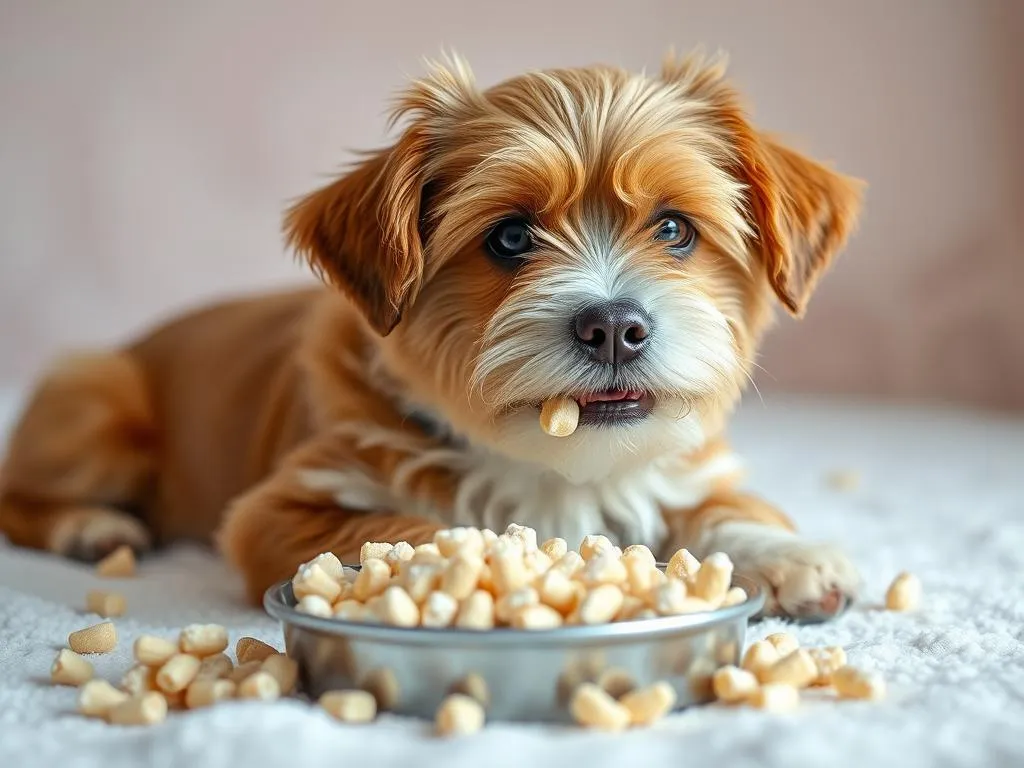
Introduction
When it comes to the health and well-being of our furry friends, understanding dog nutrition is vital. Proper nutrition not only supports a dog’s growth and development but also enhances their overall quality of life. A balanced diet is essential for maintaining a healthy weight, preventing diseases, and ensuring that our dogs thrive.
One question that often arises among dog owners is: can dogs eat frosted mini wheats? As tempting as it might be to share our breakfast cereals with our canine companions, it’s crucial to understand their dietary needs before doing so. This article will delve into the intricacies of dog nutrition, the implications of feeding them human foods, and specifically, the effects of feeding them Frosted Mini Wheats.
Understanding Dog Nutrition
Basic Nutritional Requirements
Dogs, like humans, require a balanced diet to function optimally. Here are the key components necessary for a dog’s diet:
- Proteins: Essential for growth, repairs tissues, and helps produce enzymes and hormones.
- Fats: Provide energy, support cell growth, and aid in nutrient absorption.
- Carbohydrates: Necessary for energy, though they should not be the mainstay of a dog’s diet.
- Vitamins and Minerals: Crucial for various bodily functions, including bone health, immune system support, and metabolic processes.
A balanced diet ensures that dogs receive the right proportions of these nutrients, which is critical for their overall health.
Common Nutritional Myths
Misconceptions about dog diets abound, leading to confusion among pet owners. Some common myths include:
- Dogs can thrive solely on meat.
- Grain-free diets are always healthier.
- Dogs can eat any human food.
It’s essential to rely on evidence-based information rather than anecdotal claims about dog nutrition. A well-rounded understanding of canine dietary needs will help debunk these myths.
Human Foods and Dogs
Safe vs. Unsafe Human Foods
Not all human foods are safe for dogs. Here’s a quick list:
Safe Foods for Dogs:
– Cooked lean meats (no seasoning)
– Carrots and green beans
– Plain cooked rice or pasta
– Pumpkin (plain, not spiced)
Unsafe or Toxic Foods:
– Chocolate
– Grapes and raisins
– Onions and garlic
– Xylitol (a sweetener found in many sugar-free products)
Understanding which foods are safe or harmful is crucial for avoiding potential health risks associated with improper feeding.
The Risks of Feeding Dogs Human Foods
While some human foods can be safe, there are inherent risks associated with feeding dogs human food regularly. These include:
- Digestive Issues: Human foods can cause gastrointestinal distress in dogs, leading to diarrhea or vomiting.
- Allergies and Sensitivities: Dogs may have specific allergies that can be triggered by certain human foods.
- Potential Long-term Health Risks: Regular consumption of unhealthy human foods can lead to obesity, diabetes, and other serious health conditions.
Frosted Mini Wheats: An Overview
Ingredients Breakdown
Frosted Mini Wheats are a popular breakfast cereal made from shredded wheat and coated in a layer of sugar. The primary ingredients include:
- Whole grain wheat
- Sugar
- High fructose corn syrup
- Various vitamins and minerals (often added for fortification)
While the whole grain wheat provides some nutritional value, the high sugar content raises concerns for canine consumption.
Sugar Content and Its Effects
Frosted Mini Wheats are notably high in sugar, with a single serving containing about 12 grams of sugar. For dogs, excessive sugar intake can lead to several health issues, including:
- Obesity: Too much sugar contributes to weight gain.
- Dental Issues: Sugar promotes tooth decay and gum disease.
- Hyperactivity: High sugar intake may lead to short bursts of energy followed by crashes, affecting behavior.
Understanding the implications of sugar consumption is crucial when considering if dogs can eat frosted mini wheats.
Can Dogs Eat Frosted Mini Wheats?
Expert Opinions
Veterinarians generally advise against feeding dogs frosted mini wheats regularly. While an occasional crumb may not pose a significant risk, it’s essential to consider the overall dietary impact. Dogs thrive on a diet rich in proteins and healthy fats, not sugary cereals.
Possible Health Implications
Feeding dogs Frosted Mini Wheats can lead to several health implications:
- Short-term Effects: Digestive upset can occur, leading to diarrhea or vomiting. Additionally, the sugar can cause temporary hyperactivity.
- Long-term Effects: Regular consumption can contribute to obesity, diabetes, and other chronic health conditions.
Alternatives to Frosted Mini Wheats
Healthier Treat Options for Dogs
Instead of reaching for Frosted Mini Wheats, consider healthier alternatives that can be used as treats:
- Carrot Sticks: Low in calories and high in fiber.
- Peanut Butter: Make sure it’s xylitol-free. A little goes a long way!
- Commercial Dog Treats: Look for those with natural ingredients and no added sugars.
Homemade Treat Recipes
If you’re interested in making your own dog treats, here are a couple of simple recipes:
- Peanut Butter and Banana Biscuits:
- 1 ripe banana
- 1/2 cup peanut butter (xylitol-free)
- 1/2 cup oats
-
Mix and bake at 350°F for 15-20 minutes.
-
Pumpkin Dog Treats:
- 1 cup canned pumpkin
- 2 cups whole wheat flour
- 1 egg
- Mix and roll out, then cut into shapes. Bake at 350°F for 30 minutes.
Importance of Treat Moderation
While treats can be a fun addition to your dog’s diet, moderation is key. Treats should only account for about 10% of a dog’s daily caloric intake. Balance between treats and the main diet ensures that your dog remains healthy and happy.
Conclusion
In summary, while dogs can eat frosted mini wheats in small amounts, it is not a healthy choice for regular feeding. The high sugar content and lack of essential nutrients make it unsuitable for a dog’s diet. Instead, focusing on a balanced diet filled with high-quality dog food and healthy treats will provide the nutrition your canine companion deserves.
Always consult with your veterinarian for personalized dietary advice tailored to your dog’s unique needs. Remember, a well-nourished dog is a happy dog!
FAQ Section
Common Questions About Dog Nutrition
-
Can dogs eat other breakfast cereals?
While some plain cereals might be safe, many are high in sugar and additives. Always check the ingredients. -
What human foods are best for dogs?
Lean meats, certain fruits, and vegetables like carrots and sweet potatoes are excellent choices in moderation. -
How to transition your dog to a new diet?
Gradually mix the new food with the old over a week, increasing the new food’s proportion each day to ease the transition.
By understanding dog nutrition and making informed choices, you can ensure your dog leads a healthy and fulfilling life.









